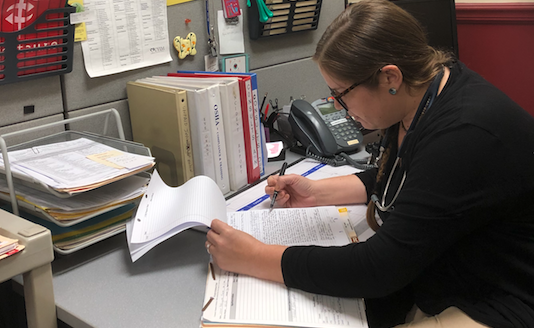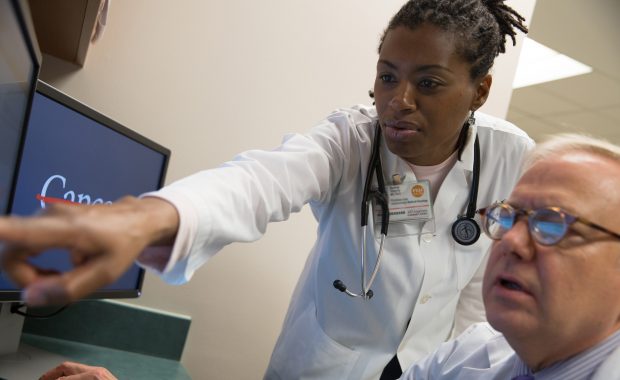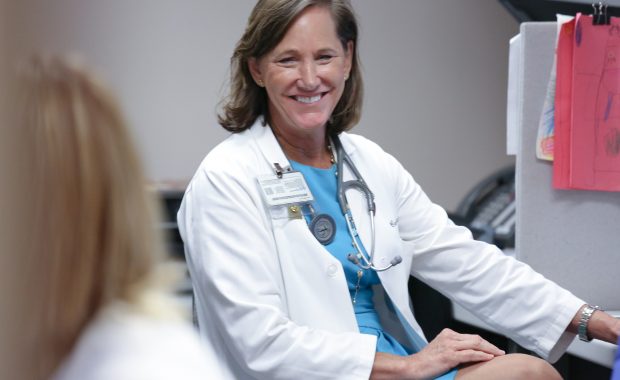Career Resources

PA JobSource
PA JobSource is an interactive, map-based career exploration platform that is available exclusively for AAPA members. Explore the map and connect with virtually every PA employer in the United States today.
PA Scope of Practice
PAs are proven and integral members of the U.S. healthcare system. But what exactly do PAs do? And who decides? The boundaries of each PA’s scope of practice are determined by these parameters: education and experience; state law; policies of employers and facilities, and the needs of the patients.
Specialty Transitions: Researching the Best Options for You
PA Career Coach Jennifer Hohman frequently works with clients who are considering changing their specialty. Find out how she helps her clients find the right specialty for them through careful self-assessment, research, and networking.
PA Administrators
PAs in administration utilize leadership and management competencies above and beyond their clinical skill set to positively affect patient care; they are aspiring or current experts in the business of medicine, revenue cycle management, quality improvement, health information technology, and compliance. AAPA supports PA administrators by offering opportunities to acquire skills and knowledge.
Beyond Your Day Job: Career Advancement via Side Gigs
Join PA Shayne Foley, co-founder of The PA Blueprint, LLC, in this interactive webinar that explores side gigs for PAs. Attendees can earn 1.0 AAPA Category 1 CME credit.
Payer Reimbursement Policies for PAs
Explanation of third-party reimbursement for PAs.
An In-Depth Guide to PA Recruiting
Learn about the remarkable contributions that PAs make every day and gain insights into how you can recruit highly qualified PAs for your open positions. Read interviews from expert sources on what matters in PA recruitment.

How to Tailor Your Job Application for a Specialty Transition
Any successful career transition is rooted in self-knowledge, curiosity and a zestful movement towards what inspires you as a clinician. PAs have unique career journeys given their ability to navigate specialty transitions that can be both exciting and daunting.

AOP Guide
Explore a new career direction or specialty with this collection of AAPA and partner resources, salary data, and CME on various practice areas, including Administration, Dermatology, Education, Emergency Medicine, Family Medicine, Hospital Medicine, Internal Medicine, Orthopaedic Surgery, Telemedicine, and Urgent Care.

Q&A with PA Leader Clair Kuriakose
Clair Kuriakose, MBA, PA-C, is a high achiever. She sets goals for herself, achieves them, and then strategically lays out her next steps. She finished PA school, got her MBA and Lean Six Sigma certification, and now leads advanced practice providers at Stanford Health Care.

A Day in the Life of PA Faculty and Clinician
Nicole S. Cournoyer, PA-C, faculty member at Thomas Jefferson University, started her career in a community-based oncology office. Teaching patients and family members about disease processes, medications and interventions led to lecturing then teaching full-time at her alma mater.

Sponsored
3 Ways PAs Can Advance Their Careers Through Leadership
For PAs looking to grow in their careers, there are also many opportunities to become a true leader in your field — either directly or through thought leadership. Here are three ways to advance in your career and become a leader.

Sponsored
Why I Changed Specialties as a PA
One of the major advantages of becoming a PA is that it is relatively easy to change from one specialty to another without the need for new certification. More than 50% of PAs will change specialties during their careers, according to AAPA’s Salary Report.

Looking for a Non-Clinical Role? Consider Medical or Clinical Science Liaison
PAs who serve as medical and clinical science liaisons play a unique role in pharmaceutical and other medical organizations. They use their clinical skills to interpret clinical trials, medications’ chemical composition, safety matters, and help to educate clinicians.

